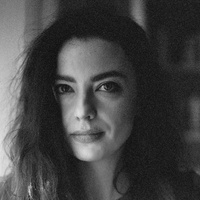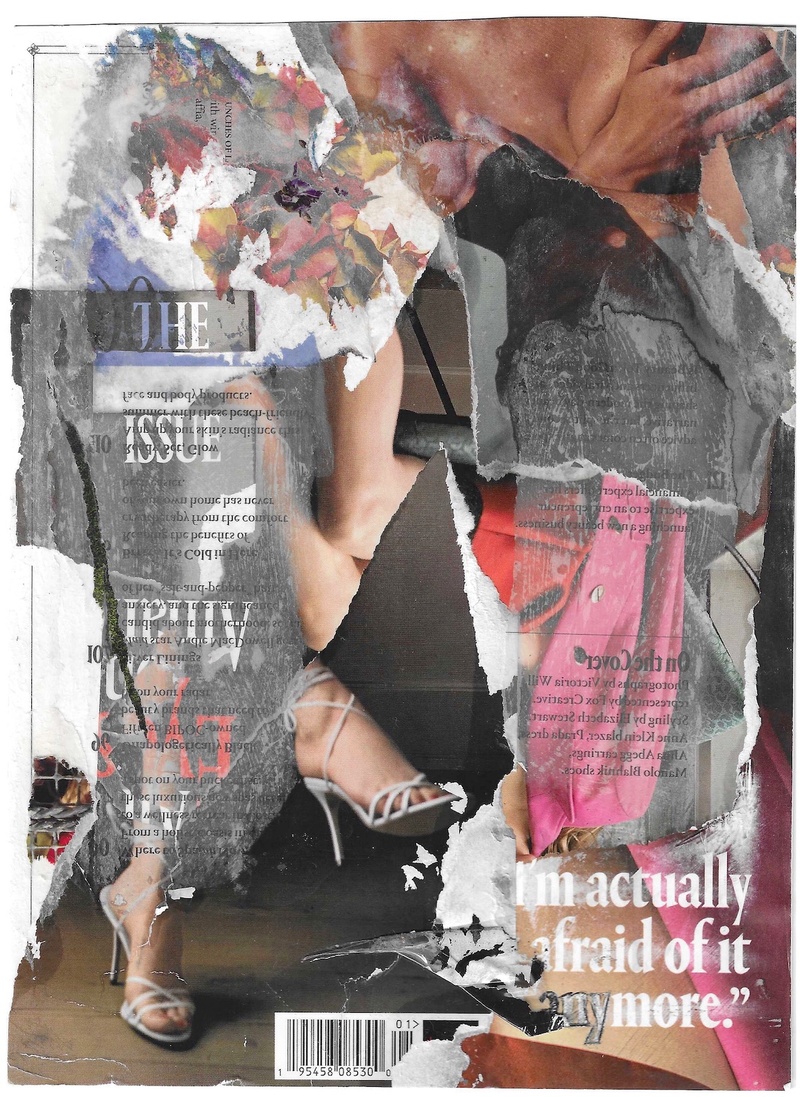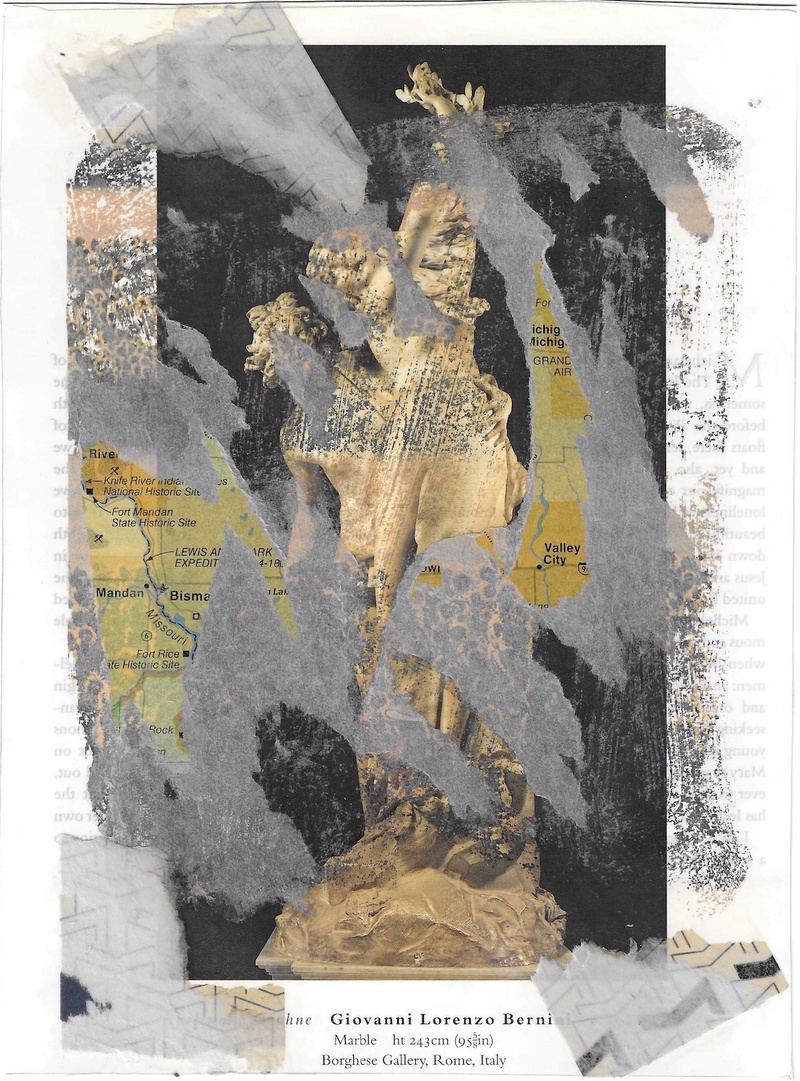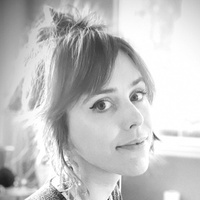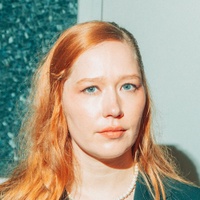On taking risks in your work
Writer, translator, and philosopher Lindsay Lerman on ego dissolution, letting the questions lead the way, and refusing to pretend everything is fine.I reread your first book before returning to What Are You again yesterday, and it struck me that your first novel is narrative, but your newest is not, in the sense that there isn’t a forward-moving chronology, and few of the trappings of narrative that we usually expect to find in a novel, such as, for instance, a narrator who is named, or even singular. How did that happen?
It’s just what happened, honestly, because of the nature of the questions I was exploring. With each book I write, the form suits the questions—the pursuit. In the case of What Are You I kind of fought it for a while because the book felt so wild. Even though I know deep down that there’s meaning and significance even when there isn’t a standard narrative or plot and ideas being spoon fed to readers, I still have that fear, a little, that people might be like, “What is this shit? This is a total mess.” But once I pushed past the fear and just accepted that this was the nature of the expression, I committed to the fact that it just is this strange beast.
Fear that people won’t recognize what they hold in their hands or understand it. I know one of the things that you wanted to talk about today was risk. And going forward with a risk in your writing, how that enriches the work. You said, “I think if there’s anything that ties my work together, it’s a desire (or a foolish hope) for the act of communication to leap across the gulfs that separate us (even if those gulfs are artificial or socially constructed). And I think it’s always a risk to attempt the leap. But that moment of risk is so pregnant, so vibrating with possibility, so alive.”
I see so many layers of risk in your new book. One of the risks that you’re taking is in this departure from recognizable form. You risk losing readers, you risk being misunderstood—as much as you can ever come away from a book “understanding” it, since a book is a living thing, always changing.
I intuit that the form your text took here was in some ways appropriate to the risk that you wanted to take thematically, or in terms of content. So what were some questions that you were asking yourself, which led you in this direction?
Some pretty big ones. Like: What is life? All forms of life, not just human life. I did a lot of shaping of the raw material for my recent book during the first year of the pandemic. So I was thinking about viral life cycles and viral replication and how that all works. What is life and how does it function? And what is the push and pull between decay and growth? I was thinking about how this plays out within human communities and individual humans, you know, in personal relationships but also in communal versions of intimacy, in communities and civilizations.
I was also thinking about the value of art and expression. How expression—especially if it takes a risk—can have deep value and can be expressive of what’s really in there, but some part of it has to be kept sacred and secret and safe from the marketplace. The marketplace doesn’t always know what to do with risk.
And I know you know it’s not easy, but it felt like I had to make my work vibrate in that strange space.
I try to picture the emotional state you are in when you sit down to write, which I know shifts because each book takes a long time to write, but it reads as a single monologue. A book reads as a continuous monologue by the narrator, right? So I’m thinking this is like a unified experience.
When you sat down to write this book, were you always writing towards this emotional pitch, or was it something that you were sort of surprised to find when you came back to edit the piece? Did you suddenly realize, Oh my god, this all exists right on the knife edge of destruction and creation?
That’s just the state I wrote it in, and that’s the part of the book that is really “me.” It was a hard book to write in some ways, but it was a necessary book. Completely urgent. And I guess that’s another reason why it feels a little risky—just because it’s so urgent. We’re in this difficult moment where people seem to be really scared of emotion. How many times a day do I hear someone saying something is “cringe” when what they seem to mean is that there was a real attempt at expressing something meaningful? Everyone’s so scared of feeling anything. And I sort of understand why; we’ve all been through a lot, but I know that I need these kinds of books. I need to feel, and I need to feel it all. And I need to understand why I’m feeling it all. Living through the process.
Would you say that the desire for self-destruction is a part of your spiritual existence in some way?
I think so. It has to do with ego dissolution. Part of my artistic practice is continual ego dissolution. But you can go too far with that, and just obliterate the possibility of creating anything. With my most recent book, I had to learn some hard lessons. If you go too far and start to pluck yourself out of existence, then there’s not going to be anything or anyone there to create anymore. There’s no more conduit.
You mentioned a medieval mystic in our email exchanges, Hildegard von Bingen, and I wanted to ask: how did you become familiar with her? You especially cited her book Scivias, “particularly the stuff about erotic union with god.”
I came to her somewhat recently. I was interested in the ways medieval mystical women had music as part of their practice, writing as part of their practice. Their practice was very rich. It was all of life, essentially, and they gave themselves over to it. They have these very sexy and groovy ideas about living with a deep erotic connection to the universe and feeling internal erotic tension with what we might call god.
I wanted to think about the threads that were developing in my work around the possibility of living in complicity with forces outside of our control—like the chaos that enters us and fucks up our lives. I think it can be a good sense of complicity. Like being on the run together.
It can be invigorating or exciting, the possibility that something is changing you, or that the nature of the very idea of you changes, dissolves, through a union with the divine. I was reading about Marguerite Porete. Do you know her? She was another medieval Christian mystic, Belgian, and wrote an autobiographical book of mysticism called The Mirror of Simple Souls, recording a series of visions, which ultimately led her to be burned at the stake. She has similar ideas to Von Bingen, I think, about forming a union with the divine through Love. In a way that can be surprisingly carnal.
It turns the whole idea of the nun—the nunnery—on its head, like, “Damn, these are a bunch of freaks.” This afternoon I picked up Decreation because someone asked in an interview if I could say a bit about the way Anne Carson writes about Simone Weil, and I saw the entire section on Marguerite Porete!
There’s something I think your work touches on too, that is erotic about suffering, and how that can actually be pleasurable, something that you desire, like sex. On that note, let’s talk about gentleness, and what it can be in counterpoint. You said, “Anne Dufourmantelle is an absolute favorite. Her theoretical work is so rich and subtle and attuned to beauty that to me it reads like poetry. Power of Gentleness became especially important once I began to articulate how not everyone is equipped with an ‘I’ that can withstand the abyss.” What do you mean by that?
This can happen in many different ways, but one example is the way girls are raised to believe that they’re only real insofar as they’re praised for their beauty or good manners or how they’re recognized by authority figures—the way that girls are not encouraged to be the center of their own experience. And I think many girls and women end up suffering from a deficit in reality, you know, not even being real to themselves. And if you’ve never been encouraged to ask hard questions about why things are the way they are, because you’re just supposed to do what you’re told, then what are you going to do with the abyss? The abyss is where the hardest questions have to be faced or serious destruction occurs.
What does this have to do with gentleness? Learning gentleness?
A lot of my work is an attempt to figure out whether there is power in gentleness—whether you can exist as a gentle creature who doesn’t want to do harm to the world, who doesn’t want to answer the harm of the world by saying, “Okay, fine, I’ll just do even more harm, and then I’ll come out on top.” My work wants to know how a gentle creature can withstand life and facing life. You know, facing life in terms of entering the abyss—trying to understand the conditions of life. I think by the end of the most recent book, the narrator does see the great power of gentleness. And how it’s the strongest power there is. Because it’s the most flowing kind of power, and it’s the most unfolding. It’s how creation happens. It’s how growth happens. But there is a dark side of gentleness, too.
What is the dark side?
I think you can be too gentle and kind of force everyone else to do the work of life. I’ve said elsewhere that there are some impulses in this book and impulses in me generally toward a radical gentleness that would mean I take myself out of existence. Like I go into the forest and I lie down on the forest floor and I just let the elements overtake me. But that’s not living in tension with life, you know? A fuller understanding of gentleness has room for tension, push and pull, pain and pleasure.
What if the baby could just gestate in the womb forever and never be born? That would be an extreme example of gentleness, but—and, then nothing ever grows.
Yeah, that’s right.
Certainly that is something that I can relate to, the desire not to harm. To not be responsible for pain inflicted on another person or other living thing. But it’s also unavoidable, because my existence necessitates that something or someone else be destroyed in order for me to live. My continuous existence in the world, my continuous creation from moment to moment, is also a form of continuous destruction.
It’s dangerous to not own up to the fact that we are also the cause of great destruction. It’s like it’s not fully respectful of life and the cycle of life, and how life and death move through us. I think another danger of too much ego dissolution is just wanting to be out in space, out in the oneness, refusing to deal with the realities of individual consciousness.
There’s responsibility associated with individual consciousness. And it has to be confronted. The fact that I am the continual source of creation and destruction and that somebody suffered—maybe multiple people suffered—in order for me to have my can of sparkling water. Maybe it’s not as extreme as child labor in sweatshops. But I don’t trust that any of the things I enjoy are not also tied up with suffering somehow. It would be nice to not have to think about that and pretend everything’s fine.
It would certainly lubricate getting through the day. I think we do all have to say that, some version of “I’m not entirely responsible for this suffering,” hundreds of times a day, just to get through the day.
Writing a book like this, where you actually stay inside that state of continuous acknowledgment, as you said, can be paralyzing. You were saying earlier that for your own mental health, this had to be a sort of limited project, in terms of its scope, and time spent writing it.
Absolutely. There’s a part of me that will always want to go be the nun or the monk and disappear and just go live out in the oneness and feel like I’m in the primordial soup, where these problems don’t plague me. But my work is always grappling with that, and how I have to accept that there are real responsibilities and reasons to be here.
Do you think that in a world in which this book didn’t ever have to enter the marketplace, you might have been able to write it forever?
Yeah, maybe this would have been my lifelong project or something. This book needed a lot of time. I’ve learned so much along the way. There were certain questions I wasn’t ready to entertain at the beginning of my time with it. It’s like this with everything I make—there were questions I wouldn’t let myself entertain, or maybe I just wasn’t yet capable of thinking or feeling through their complexity. And then as I continued, I taught myself or showed myself that I was capable. I saw that I could entertain these questions around dissolution and destruction and complicity. I could ask these questions and it wouldn’t mean that I was the devil or something, you know?
Speaking of things we can’t control, we can’t control readers’ reactions to your book and releasing a book like this into the world might elicit all kinds of reactions. That’s part of the risk. The content is risky and the form is risky. I think every writer of fiction is writing about something—maybe somewhere underneath that fictional layer—very real for them.
Yes, absolutely.
Does that scare you?
No, not really. If people are going to see something in my work that they don’t want to see, it’s because each book is a mirror. Everything is a mirror. There’s nothing someone could show me that I wouldn’t also see inside myself, you know? That doesn’t mean I want to see all the worst parts of myself reflected back at me all the time—I might not be ready for that, it might be harmful. But it’s just a mirror.
I hope—I really hope—that people can feel how all my work is quite hopeful and it does believe in the possibility of real connection and real love and care and gentleness and consideration. Everything I write is an act of care and love—an extension of a real and a fictional self to anyone who wants someone to take their hand and walk with them through some hard questions.
It can feel scary, I think, for a reader to encounter this kind of material but then they finish the book and they’re still alive. Just like you grew over the course of writing this book, a reader in some way grows with you, sharing that experience over 175 pages.
I hope all my books can be like that—I know that’s why I need books. I believe in books and I think no matter how many times people say print is dead and books are going away, I’ll say, “No, I don’t think so.” I just really don’t think so. I’ve always loved books as teachers. Sometimes they’re more than the teacher and they’re actually the guru. I’ve always needed them for that and I think they’re eternal for that reason. They’re like the human versions of the eternal.
Lindsay Lerman Recommends:
The sketches my daughter leaves all over the house. Lately it’s been many renderings of bears, mushrooms, and ducks. There’s so much freedom in them.
Ronaldo V. Wilson’s book Virgil Kills, out now with Nightboat Books
Nathalie Biancheri’s film Wolf
The Community Media Center at the ICA in Richmond, started by my friend Chioke I’Anson. Media literacy + challenging the dominant media landscape + adapting quickly to social realities (“we believe the art of storytelling should be accessible to everyone”)
Swimming, whenever possible, wherever possible
***
The below are collages made by Sarah Gerard, based on this conversation
What Are You 1 (crop)
What Are You 2 (crop)

